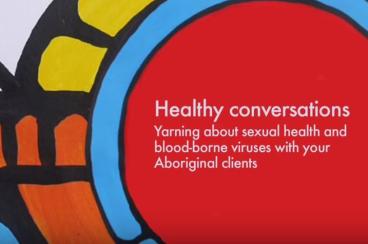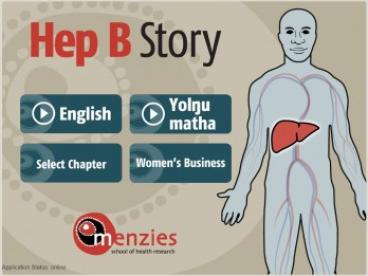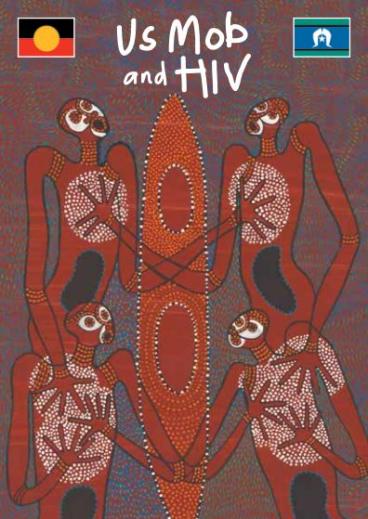
For Health Professionals
Healthy conversations
Whether you are an Aboriginal or non-Aboriginal health professional, you might not know how best to raise the issue of sexual health with your Aboriginal clients. You might feel embarrassed, or nervous about offending your client, or wary about breaching cultural protocols. This page offers some video and written resources that contain some information, tips and strategies to help you raise this important issue in sensitive and effective ways.


Healthy Conversations
This video is for health professionals working with Aboriginal clients. It provides advice on how to have positive discussions about sexual health and blood-borne viruses with your clients and is presented by practising specialists in the field. (Produced by WA Health)


No Shame Yarn About It
This longer video (33 min) aims to help Aboriginal sexual health workers to: (1) support young people to feel safe about coming to their clinic; (2) break the ice and get clients yarning about sexual health; and (3) balance the worker’s own values and beliefs with the responsibility to be professional. (Produced by Family Planning Queensland) **Scroll down and click on the video to view.


Smart and Deadly
Smart and Deadly is a series of eight educational YouTube clips and rap songs for young people, plus a documentary DVD which serves as a guide for professionals and organisations wanting to collaborate with Aboriginal communities to deliver sexual health promotion to rural Aboriginal young people. (Produced by Centre for Excellence in Rural Sexual Health)


Cultural Respect Guide
While aimed predominantly at health professionals, this resource has important information for improving communication with Aboriginal people with respect to sex and sexual health. (Produced by NSW North Coast Area Health Service)


Having the Hard Yarn
This video aims to help health professionals working with Aboriginal people, how to have the conversation around Sexual Health and Healthy Relationships. Developed by health workers to support pregnant mums and dads have the hard yarn about STI's, smoking in pregnancy, alcohol and domestic violence, starring members of Napranum community.


Hep B Story
The Hep B story is a visual, interactive app in English and Yolŋu matha designed for patients living with chronic hepatitis B (hep B) and their families. It tells the story of the hep B virus, how you get it, what happens over time, how you know you have it as well as details about immunisation and treatment (including a game). There is also a separate women's section dealing with mother to child transmission and ways to prevent it.


Us Mob and HIV
This booklet provides basic information on HIV, focusing on transmission, prevention, HIV testing, HIV treatments, health monitoring, care and support available for people with HIV, as well as service contact details.


Young Deadly Free
This website offers many more resources for Sexual Health. It also has different sections for Parents and Young people also.


Big Shame DVD
A story about child sexual assault for services that have Aboriginal workers and people working with Aboriginal communities.


ATSIHIV Resources
ATSIHIV is a website which provides up to date resourcs on HIV for Aboriginal and Torres Strait Islander people, communities and health services across Australia. The website is also intended to support health professionals and educators, with information on latest data on HIV among Aboriginal and Torres Strait Islander communities, key research projects, and links to useful online resources.


HIV awareness video
This video resource provides important information regarding living with HIV, and is targeted towards educating people that have been recently diagnosed. This can be used as a tool to have important discussions with patients regarding what HIV is, treatment, and maintaining a healthy lifestyle. (Produced by HepatitisWA, funded by WA Health)


STI Video
The WA Department of Health has developed a video that covers all aspects of STIs from prevention through to treatment and contact tracing. This video can be used as a tool to have important discussions with patients and young people about sexual health.

